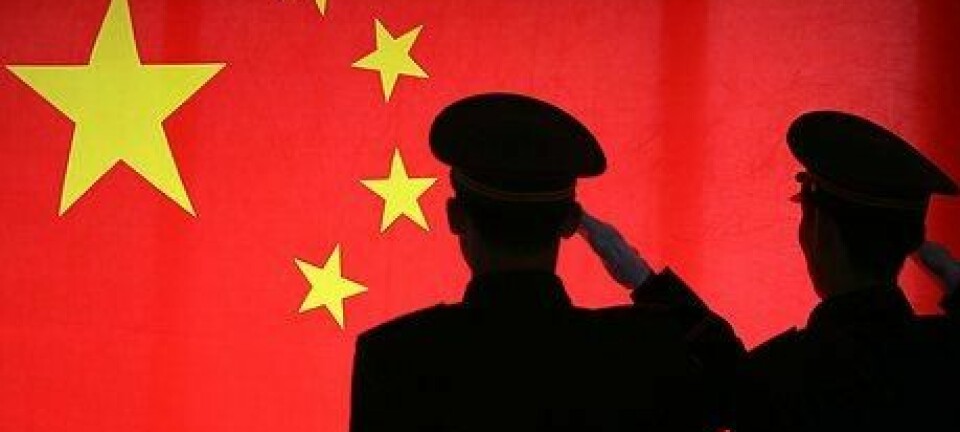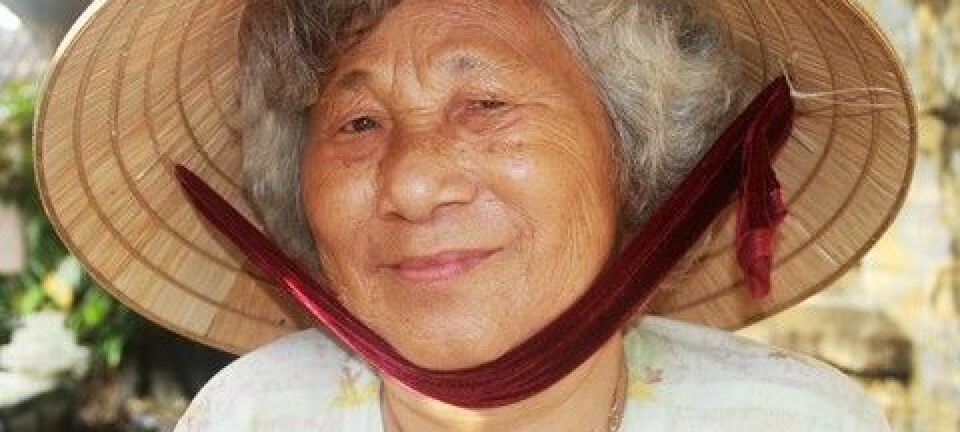
China has inspired us since Enlightenment
Europe and the USA are stagnating economically, while China thunders ahead. Can we learn anything from China? New research shows the West has been inspired by China since the Age of Enlightenment.
While Europe and the USA are fighting economic problems such as low growth, large debts and unemployment, China’s economy keeps on growing. Now politicians and economists are looking into what we can learn from China.
But the West’s inspiration from China is not new – research shows that China has inspired us since the Age of Enlightenment, an era in which science and intellectual interchange were promoted, while superstition, intolerance and abuses in the church and state were opposed.
According to Stefan Gaarsmand Jacobsen, the great thinkers of the Enlightenment were also inspired by foreign cultures and civilisations, and by the Chinese in particular.
Jacobsen, of the Department of Culture and Society – Department of the History of Ideas at Aarhus University, was recently awarded a PhD for his thesis (‘A model for all states – China in debates on poverty, meritocracy, absolutism and political economy in early modern Europe’) on how China played a role in the European Enlightenment during the 18th Century.
Jesuits brought news from China

China’s influence on the European Enlightenment started in the 17th century, when Jesuit monks travelled to China to spread Christianity. Through letters and books, the missionaries described a country that was more peaceful than Europe – which had experienced decades of war, including the Thirty Years’ War (1618-48), one of the most destructive European conflicts, involving almost all countries in Europe.
Thinkers in Europe started to ask themselves why China was so peaceful, while Europeans waged war on each other.
The researcher studied the philosophers’ reactions to the missionaries’ reports.
“What I looked at was not so much whether the Jesuit missionaries’ reports were right or wrong, but how the European Enlightenment thinkers chose to interpret the reports,” he says.
Ruling their realms
China became an example of how Europe could manage without nobility. Thinkers like Voltaire pointed out that the best educated should be the civil servants – he no longer regarded kinship as important.
One subject the European philosophers thought about was the differences in the way Europeans and Chinese leaders ruled their realms.
In France, the ‘right’ families collected taxes from the people, and the tax-collecting job went from father to son. These ‘right’ families were the nobility, and they enjoyed economic and political privileges given by the king; they paid some of the collected taxes to the king and kept the rest for themselves.
The Jesuit monks described a China with an emperor, who inherited his title like Europe’s kings, while mandarins were employed as tax collectors. The mandarins (bureaucrats, counsellors or ministers) did not inherit their position, but were trained to it, with strict examinations.
They were sent to China’s various regions to collect taxes – and also to fight poverty and ensure the people had enough food. In Europe, fighting poverty was not a task for the nobility or king, but mainly for priests, nuns and the church.
Europeans should be trained
Francois-Marie Arouet (1694-1778), better known as Voltaire, was one of the Enlightenment philosophers inspired by the differences between China and Europe.
“China became an example of how Europe could manage without nobility,” says Jacobsen. “Thinkers like Voltaire pointed out that the best educated should be the civil servants – he no longer regarded kinship as important.”
The idea that the realm should be run by the best educated people also gained a foothold in European royal houses – for instance at the court of Joseph II (1741-1790), who ruled the Habsburg lands, which comprised Austria, Slovenia and parts of Germany and Italy.
Joseph II was taught philosophy by a Jesuit monk, and learned about the Chinese education system. He also listened to the criticism of kinship in the positions related to running the country. He concluded that civil servants should be selected because of their education. But Joseph II was a king who had inherited his title. How should he extricate himself from the dilemma?
“For Joseph, China showed it was possible to have an absolute monarch without nobility,” says the researcher. China also showed it was possible to have a king and run the realm more effectively.
So while Enlightenment philosophers like Voltaire used China as inspiration in promoting education for the people who would run the country, the monarchs saw how they could retain their power while having educated civil servants.
Copy the Chinese – but beware!
According to Jacobsen, the Age of Enlightenment debate about the Chinese can also be used today. China is thundering ahead and the question is again what we can learn from them.
“China has high growth today,” says the researcher. “Why? What do they do differently? Why are they so effective? Not so long ago there was a lot of scepticism about the Chinese, but that’s gone now. Politicians and opinion-makers all say we should copy the Chinese.”
However, he adds that there are reasons to think twice about using China as a source of inspiration:
“We should always remember the democratic aspect – that Europe, unlike China, is made up of democracies,” says Jacobsen. “Before we let China inspire us, we must be sure that we know the real situation there.”
--------------------------------------------------
Read this article in Danish at videnskab.dk
Translated by: Michael de Laine








